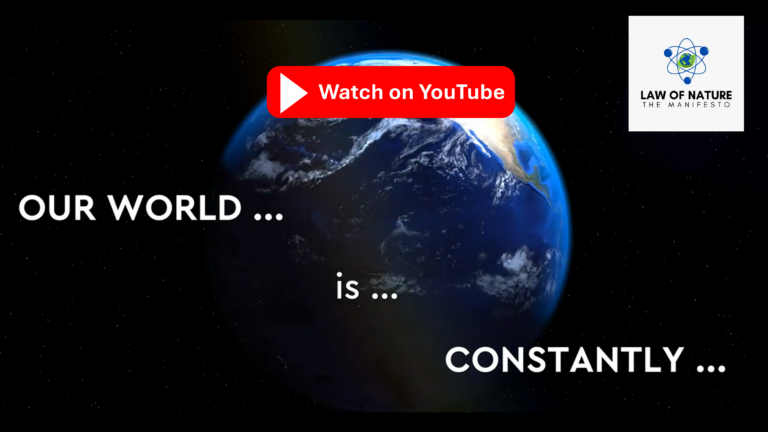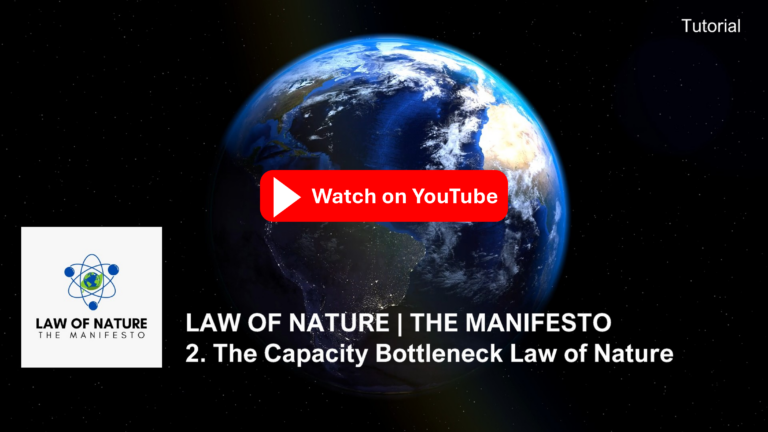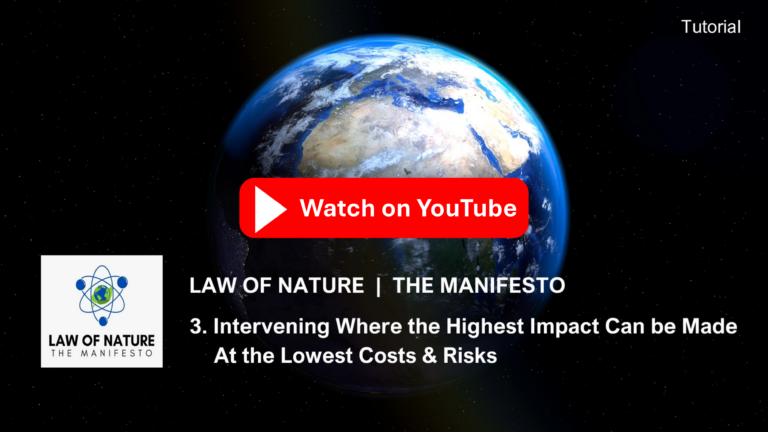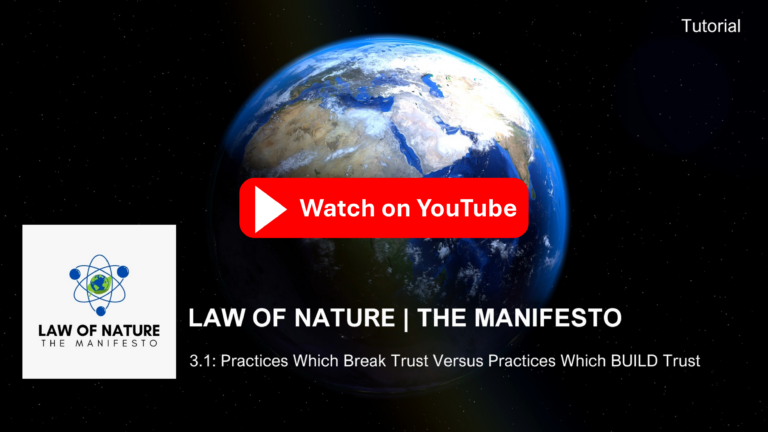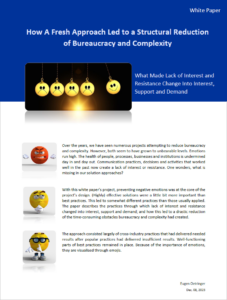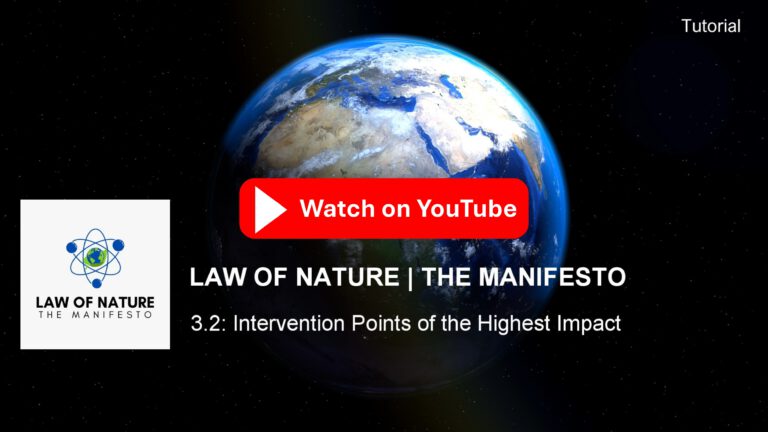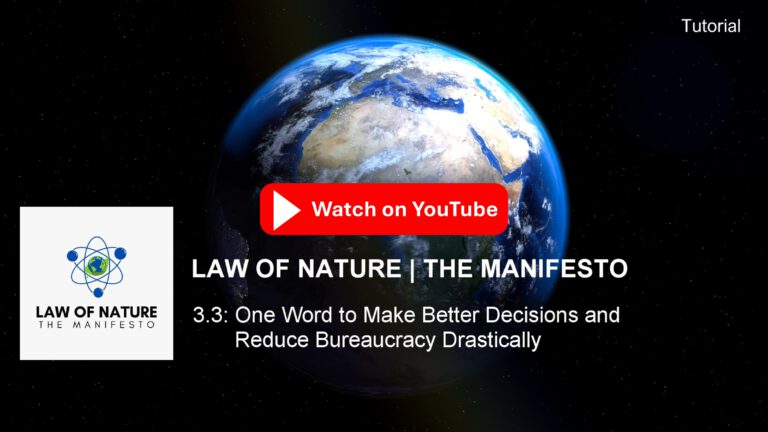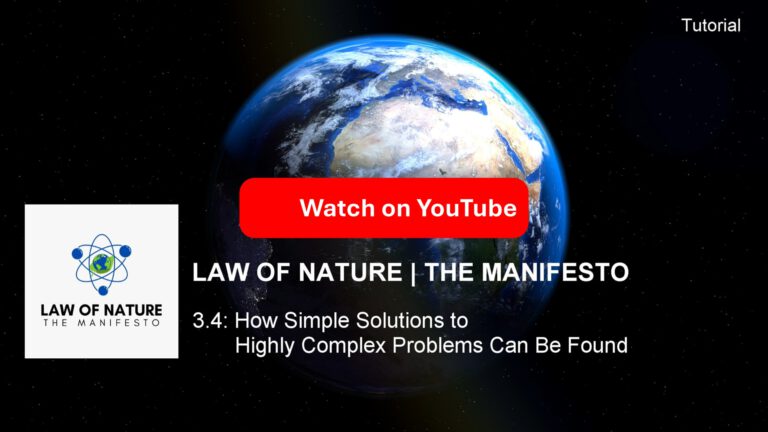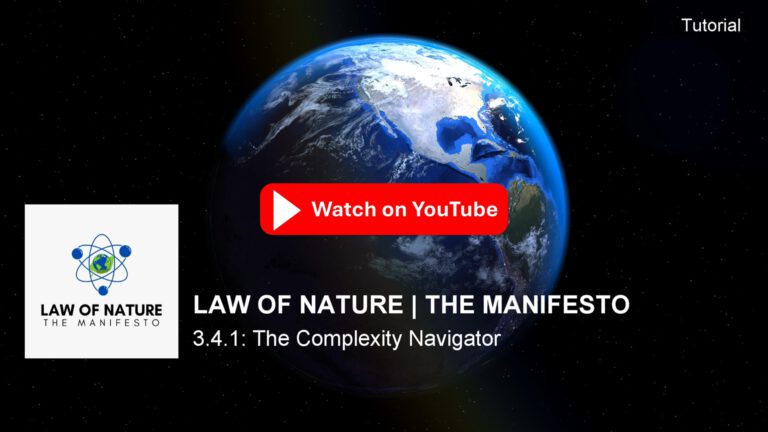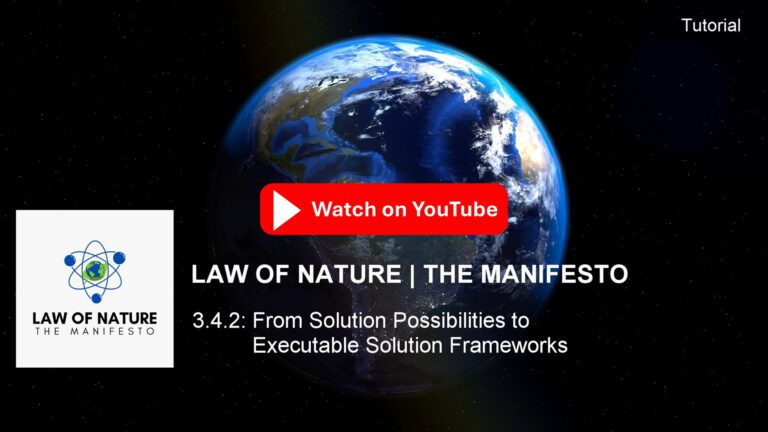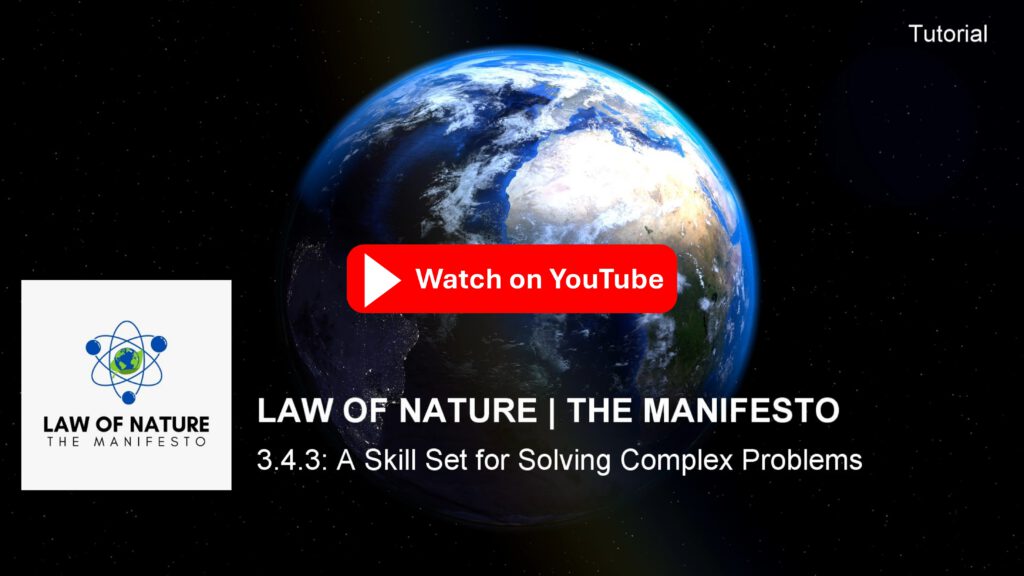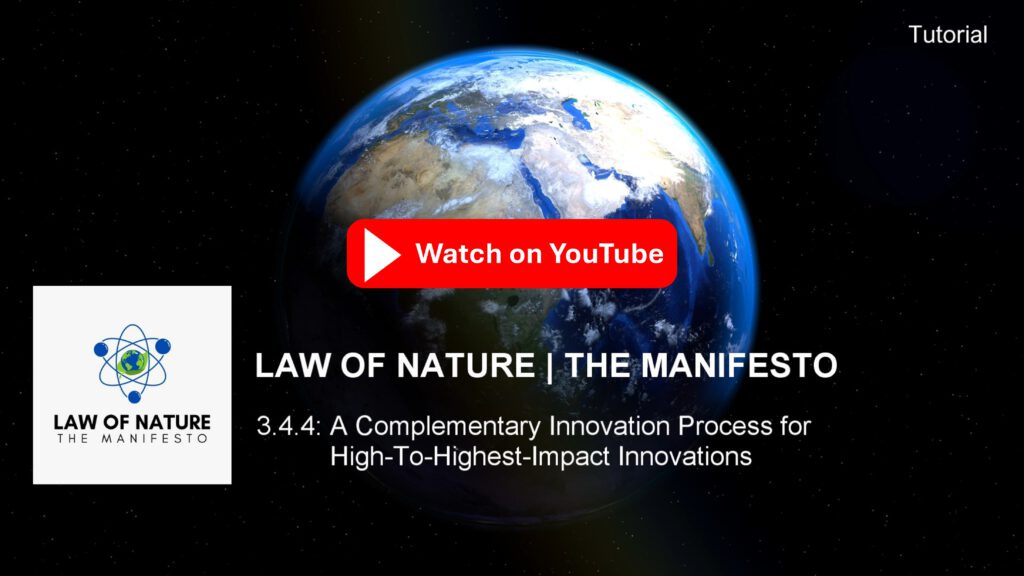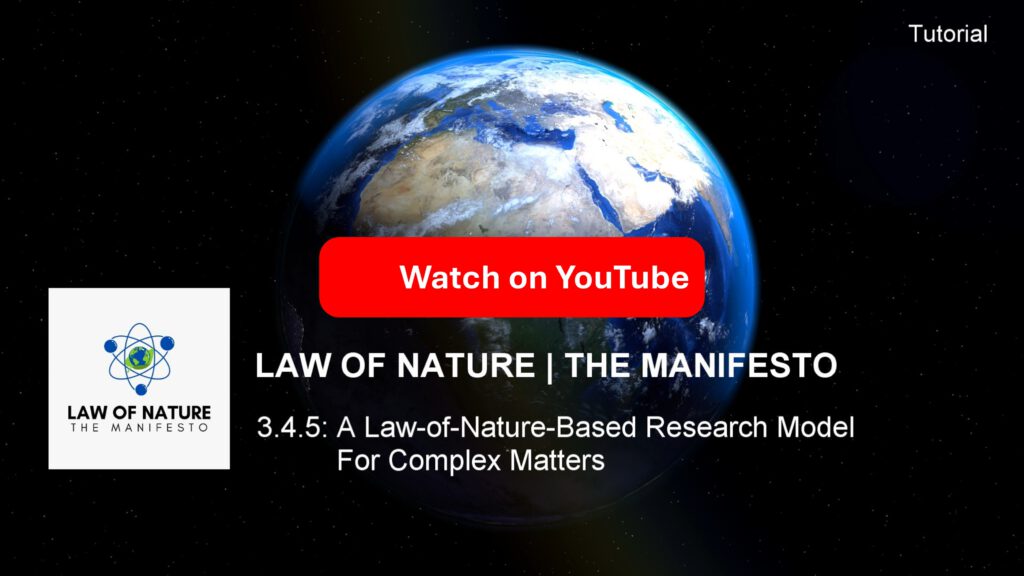The Law of Nature Manifesto: Guidance Package
What delivered needed results where our long-standing approaches failed us

Examples that inspired elements of the Manifesto
The smartphone ...
While the phone industry tried to re-invent the phone step by step, Steve Jobs ignored the common innovation processes. Instead of marginal improvements, he drove for going beyond the Tipping Point where it delivered what users really wanted.
More in Manifesto Tutorial 3.4.4

A large project: From stuck in endless discussions to up and running three months later & extraordinary results ...
In the Netherlands, a potato fungal disease (P. infestans) became resistant to chemical treatments. It threatened the country’s yearly harvest and added ever more unwanted substances to our food.
20,000 farmers, trade organisations, scientists, and government organisations were stuck in endless discussions and finger-pointing.

A combination of two old methods was brought in.
Results:
- Finger-pointing quickly changed into listening and helping each other
- After a few workshops, the project was up and running three months later
- The project organization: 1.5 full-time employees only
- Budget needs: tiny
- Goals: Achieved quicker than planned
More in Manifesto Tutorial 3.4.2.
From Health Services giving up to available therapies delivering the needed results for all matters (7 times) ...
In one family and for seven different health matters, two Laws of Nature showed the way to highly effective treatments. Examples:
- ADHD: Daily emotional outbursts disappeared for 17 years
- Dyslexia: After simple interventions, learning to read happened within six weeks and 10-minute exercises per day
- Weeks of severe back pain: With signs of it coming again, a few 1-minute exercises are sufficient to prevent it
Many others found effective treatments after official Health Services gave up

Possibility:
From exponential growth of problems in Health Services and their consequences to ‘Flatten-the-Curve’ of:
- People suffering
- Costs of Health Services
- Structural capacity bottlenecks
- Violence and crime, jurisdiction and imprisonment from mental matters
- Countries undermining their competitive positions
More in Manifesto Tutorials 1 and 2
What, compared to our long-standing but failed solution attempts, Einstein, Newton and Darwin did differently ...
Practices which enabled Einstein, Newton and Darwin to make their discoveries are well known or visible to us. However, where are the research, innovation and decision-making processes applying them?
In this Manifesto
- Highest-impact practices of Einstein, Newton and Darwin (no mathematics needed)
- These practices confirmed and extended by an Einstein-Newton-Darwin scientist, Prof. Michael Fitzgerald
- Various examples of how these practices were applied to make this Manifesto possible
Result
- This Manifesto as applying Einstein-Newton-Darwin practices was one of the foundations making it possible
More throughout the Manifesto tutorials and Manifesto Tutorials 1 and 2 in particular

Examples that applied relevant elements of the Manifesto
1st Pilot Project in a Field of High Failure Fates and Resistance: Exceptional Results ...
In a specific field of service management, known for high project failure rates since the 1990’s, applying relevant elements of the Manifesto led to the following results:
- Lack of interest and resistance changed into interest, support and demand
- A structural reduction and prevention of bureaucracy and complexity by resolving it at its root cause
- Delivered on time, without escalations and costly corrections
More in Manifesto Tutorial 3.1
Manifesto Tutorials
5 to 25 Minute Tutorials For
Those who want to know where and how to intervene
2 hours only
Those designing and executing transformation projects
2:30 hours only
1.
Introduction & The Tipping Point Law of Nature
More Information
- Why do solution attempts fail us today?
- How did the Laws of Nature disappear from decision-making?
- How do we reconnect with the Einstein-Newton-Darwin practices?
- Multiple structurally different practices from how we go about tough problems today
- What is the Tipping Point Law of Nature in one sentence?
- How can we together get started in our own environments to solve these matters?
- How we apply the Tipping Point Law of Nature without realizing it
- The law’s huge solution potential waiting to be unleashed
- Hard-to-ignore questions everybody can ask to guide decision-makers, their advisors and experts
2.
The Capacity Bottleneck Law of Nature
- What would Einstein, Newton and Darwin do when faced with differences against standard practices?
- Answers by Prof. Michael Fitzgerald
- What characteristics should decision-makers look for when hiring people to solve tough problems?
- Answers by Prof. M. Fitzgerald
- Why is the Capacity Bottleneck Law of Nature applied for the road system, but not for organizations and mental matters such as ADHD, autism and dyslexia?
- A systemic failure demanding the highest priority now
- Why many are likely to have found effective mental health treatments after standard therapies delivered insufficient results
- The bound-to-be missing Law-of-Nature-based link between identified causes of various mental matters and their symptoms,
- Why urgently needed research with the missing link couldn’t get started
- Hard-to-ignore guiding questions you can ask when managerial, organizational, societal and therapy decisions need to be made
3.
Intervening Where the Highest Impact Can be Made At the Lowest Costs & Risks
- Why do simplification projects in a box often create more bureaucracy and complexity at the system level than is saved inside the box? How can this be prevented?
- Why is a package of (simple) solutions required to solve complex problems?
- The structure of the Law of Nature Manifesto’s Guidance Package
- Hard-to-ignore guiding questions you can ask when attempts are made to solve complex problems
3.1
Practices Which Break Trust Versus Practices Which BUILD Trust
- Why do communication practices that worked (well) before now trigger disbelief, resistance and opposition?
- What type of communications, practices and activities should be avoided?
- What communications, practices and activities turned the previous situation into interest, support and demand?
- A guiding question you can apply yourself to get people on board
3.2
Intervention Points of the Highest Impact
- Why have our long-standing approaches to
- unlocking the available solutions &
- reducing the crippling bureaucracy &
- reducing the overwhelming complexity
failed us?
- What are intervention points of the highest impact we have missed?
- Eight executable intervention points of the highest impact
- A guiding question you can apply to get people on board
- Hard-to-ignore guiding questions you can ask when decisions are to be made
3.3
One Word to Make Better Decisions and Reduce Bureaucracy Drastically
- What is the most impactful intervention possibility to
- Flatten-the-Curve of the exponentially grown bureaucracy and complexity drastically?
- Avoid practices and ways of thinking that worsen matters and select those that solve the tough problems in our environment and beyond?
- Re-create trust?
A single word, derived from the Tipping Point Law of Nature
- How can we utilize the existing bureaucracy to get this intervention possibility into decision-making?
- How do we prevent waiting decades until the regulations, processes and the like are adjusted?
- How does this intervention align with popular models and science?
- Hard-to-ignore guiding questions you can ask when decisions are to be made
Guidance for an interactive session or workshop:
3.4
How Simple Solutions to Highly Complex Problems Can Be Found
- What is the Manifesto’s foundation for solving complex problems?
- What are the practices for finding simple solutions and getting them through the system?
→ Only five fundamental elements are needed.
- Hard-to-ignore guiding questions you can ask when decisions are to be made
3.4.1
The Complexity Navigator
- How can the most-damaging root causes of complex problems be found at the system levels?
- How can solvable root causes hiding behind the identified root causes be found?
- Why don’t we need to worry about countless 2nd/3rd-level root causes and symptoms?
- How can we identifying the desired future situation with little effort?
- Guiding questions you can ask when decisions are to be made
3.4.2
From Solution Possibilities to Executable Solution Frameworks
- What led to Executable Solution Frameworks and needed results where our long-standing solution attempts failed us?
→ Explained through two examples from the field. - Could it be there is a new complication undermining our solution efforts to complex matters?
→ Yes.
→ What can be done about it. - What was the framework used to create Executable Solution Frameworks?
→ It was based on impactful elements of two old methods, and the following:- Integrating relevant Laws of Nature
- Listening to what is really needed in the groups involved and impacted
- What has delivered needed results where our long-standing solution attempts failed us
- Guiding questions you can ask when decisions are to be made
Example 1 (former blog post, Dutch language): ‘Hoe de sector de aardappelziekte onder controle kreeg‘
Example 2 (white paper): Enabling the value of corporate strategy
Charles de Monchy’s collection of tools: ‘Collaboration in Networks, a toolbook for First Movers’. Downloadable via Luminspino.
3.4.3
A Skill Set for Solving Complex Problems
This video tutorial explores one of the most urgently needed — yet widely overlooked — skill sets of our time: the Skill Set for Solving Complex Problems
It is a compelling business case as well.
- Why do our hiring and job-advancement processes exclude indiviuals with the Skill Set for Solving Complex Problems?
- What does the ideal Skill Set for Solving Complex Problems look like?
→ This skill set has been known for a long time
- Which groups are more likely than others to possess or develop some of these skills?
→ Examples include those with Neurodiversity and many of our children — until the educational system moves them into the exact skill set
- What obstacles must be overcome to (re-)introduce this skill set into today’s hiring practices?
- Guiding Questions you can ask when important decisions need to be made
3.4.4
A Complementary Innovation Process for High-To-Highest Impact Innovations
- Why do our high-to-highest impact innovations get stuck in the system by default?
- Why is it so difficult to get non-technical innovations through the system?
- How should innovation processes be adapted to get impactful innovations through the system (including non-technical innovations)?
- Guiding questions you can ask when decisions are to be made
3.4.5
A Law-of-Nature-Based Research Model for Complex Matters
- Why are new research models needed?
→ See Tutorial 2 above
→ Please do the experiment at the beginning of this tutorial - How could such a model look like?
→ A Law-of-Nature-based research AND treatment model in one
- Guiding questions you can ask when decisions are to be made

